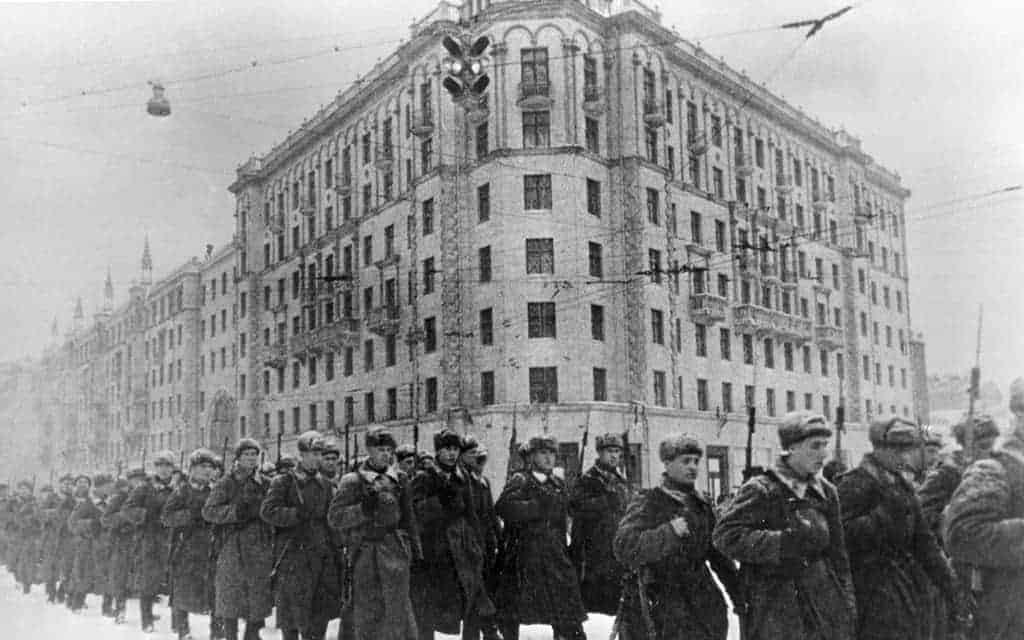On this date in history the German launch an offensive aimed at capturing Moscow, the capital of the Soviet Union. The assault on Stalin’s capital is led by the 1st Army Group under the command of General Fedor von Bock.
Hitler’s army invaded the Soviet Union the previous June. Hitler had taken Stalin completely by surprise and this allowed the Germans to make rapid advances. All through the summer and the Autumn of 1941 the Germans inflicted a series of massive defeats on the Soviets. By the winter of 1941 they had captured most of the Ukraine, the Baltic States and western Russia. To many observers’ it seemed that the Germans would sweep the Soviet’s away as they had the Poles and the French.
As the winter approached the German advance was slowed and many in the army became concerned, they knew their history and remembered that both Napoleon and Charles XII lost armies because of the cruel Russian winter.

Even Hitler became worried especially after the Germans were defeated at the Yelnya salient. Hitler admitted that “if I had known they had as many tanks as that, I’d have thought twice before invading.”
However, he was determined to capture Moscow. Many German generals advised against Operation Typhon, the name of the operation to take the Soviet capital. However, Hitler remained adamant and he decided to push on. He declared that the enemy was broken and pointed to his army’s victory at Kiev. Hitler ordered the First Army to central Russia and had it reinforced with units from other armies.
The Soviet’s also knew their history and they drew inspiration from the ancestors’ defeat of Napoleon and adopted a similar scorched earth policy as had their forebears when the French had invaded in 1813. Any dwelling, food supplies, and materials that could not be taken with them were burnt. They also crucially destroyed bridges and railroads and blocked roads. On this date, the German army managed to drive forward for ten days towards Moscow. However, the advance only found ruins and they could find nothing to support and feed the exhausted troops.
The Germans continued to advance in the terrible weather. They did not meet much opposition at first but the Soviets were planning a counter-offensive to beat the Germans back. They were soon to move troops from Siberia to the Moscow sector and also were to use the legendary T-34 for the first time. These and the weather ultimately allowed the Soviets to inflict a terrible defeat on the Germans at the gates of Moscow. The Germans were never again to threaten Moscow and such was the defeat inflict on his army in the winter of 1941-1942, that Hitler opted to attack southern Russia in the spring of 1942, rather than make another attempt on Moscow.

